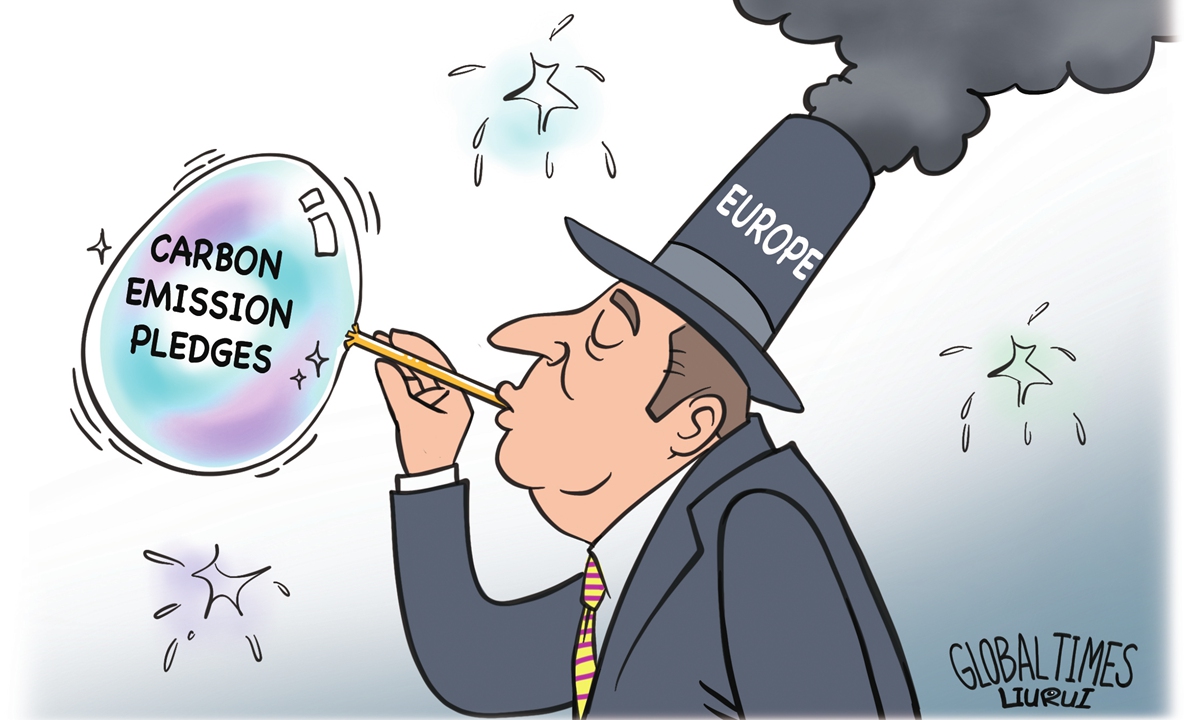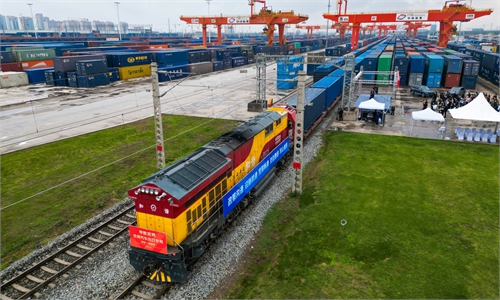Developed countries' 'green colonialism' is more covert, hazardous exploitation and plunder

Illustration: Liu Rui/GT
Lately, there has been substantial criticism over Europe's climate policies, with some even accusing them as "green colonialism." The term "green colonialism," also known as "eco-colonialism" or "carbon colonialism," generally refers to developed countries exploiting the natural resources of developing nations, sacrificing the ecological environment and depriving them of the right to independent and autonomous development. This form of "green colonialism" differs from traditional colonialism and represents a new form of exploitation by developed countries against developing nations in the era of economic globalization. It is more covert in nature, yet equally damaging.The West has consistently criticized developing countries, often referred to as the Global South, as the main greenhouse gas emitters, and sees them as major impediments to emissions reductions. In reality, the West lacks the moral authority to preach to other nations. Research indicates that in 2015, a staggering 92 percent of the carbon emissions increase was caused by the Global North, while the Global South contributed only 8 percent. Furthermore, estimates based on per capita cumulative carbon emissions reveal that in 2021, some of the top 10 countries with the largest cumulative emissions, including the US, Canada, Russia and Japan, accounted for only 10 percent of the world's total population. However, their cumulative carbon dioxide emissions constituted 39 percent of the global total. Yet, although China, India, Brazil and Indonesia, which collectively account for 42 percent of the world's population, their cumulative carbon dioxide emissions only make up 23 percent of the global total.
Indeed, Europe has made significant strides in green emissions reduction. However, a crucial factor contributing to this progress is the outsourcing of traditional industries from Europe. In its late-stage capitalist development, Europe has seen numerous industries relocate on a large scale in pursuit of lower costs and higher returns. Industries with high pollution and emission levels have faced restrictions due to European policies, prompting them to move to other developing countries. However, when Europe imports high-carbon products from these developing countries, it imposes carbon border taxes as fines for their excessive emissions. In essence, Europe benefits from the production of high-carbon products in developing countries without shouldering responsibilities, while these developing nations not only bear the impact of emissions but also face criticism and even penalties from developed countries.
In May 2022, German Chancellor Olaf Scholz visited Africa in search of new sources of natural gas. Algeria, Niger and Nigeria agreed to the construction of a gas pipeline across the Sahara Desert that will supply Europe with gas. The European Union (EU) has shown growing interest in this project as an effort to diversify the bloc's sources of energy. However, the project has encountered obstacles in its progress. Apart from security concerns in Africa, a significant reason lies in Europe's attitude toward Africa. Mohamed Adow, director of Power Shift Africa, a think tank based in Nairobi, said in 2022 that Europe was trying to make Africa its "gas station." "We cannot allow Africa, which has missed out on fossil fuel-driven industrialization, to now become the victim of short-sighted, selfish colonialist interests, especially from Europe," he added.
The process of energy transition in Europe has long been underway. However, amid the increasing threat of global climate change, and the stronger urgency of the need brought by the Russia-Ukraine conflict, this transition has significantly accelerated. The reason why Europe values the green industry is primarily because Europe has taken an early lead in this field, with relative technological advantages and rich experience. Europe lags behind in the digital economy, so it wants to focus on the green industry, which is a core element of its future competitiveness. At the same time, gaining the upper hand in this field means the possibility of dominating the formulation of rules, which is an intangible soft power that Europe, lacking in hard power, has always pursued. Europe has always been ambitious in the green industry.
The core of Europe's arrogance and stubbornness lies in Westcentrism. However, the world is no longer in the era when Europe was a regional great powers, and the issue of climate change requires all countries to work together. If Europe only pays lip service to equality but still holds onto the outdated mentality of colonialism, cooperation will be impossible, and its expectations will only drift further away.
The author is a professor with the School of International Relations at Beijing Foreign Studies University. opinion@globaltimes.com.cn


